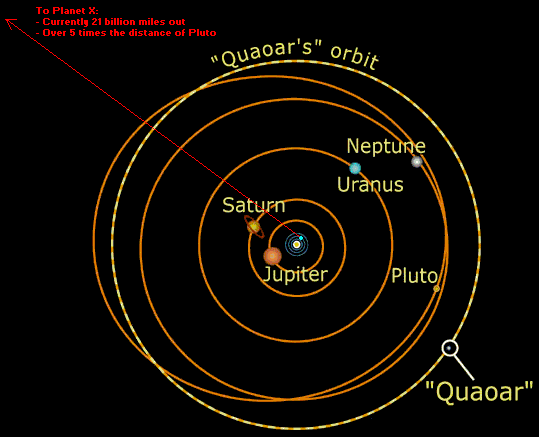

 |
 |
SENTINEL |
10/9/02 8:11:13 AM Pacific Daylight Time
Two quick notes:
There is no direct reference to PX in the CSPAN broadcast, which
was
addressing NEOs, however the question was asked, how large of an
object
would it take to knock the Earth off it's axis. However I believe
they
were referring to the force required from a direct impact. PX
will not
impact the Earth, it will simply interfere with it's stasis
field.
=======================
Quaoar is suspected to be a KBO (iceball) approx. 800 miles in
diameter
who's 285 year orbit, which is inclined 8 degrees off the ecliptic,
is
approx. 7 billion miles out from the sun and who's perigee
occasionally
brings it within Neptune's orbital path. Quaoar's current position
is
approx. 180 degrees opposite to the direction from which PX was
recently
sited and photographed.
Here is a link to a paper submitted by it's discoverers Chad Trujillo
and
Mike Brown of
Caltech;
http://www.gps.caltech.edu/~mbrown/papers/ps/qu.pdf
Here is a cool animated link of it's orbital path
;
http://www.gps.caltech.edu/~chad/quaoar/quaoarorbit.gif
The following graphic compares Quaoar's current position to that of
PX.

Note: On it's outbound passage PX will pass relatively close to Quaoar
and
Pluto's orbits. Maybe it will add them to it's traveling contingency
of
moons? Or possibly both were left behind from some of PX's
previous
passages?